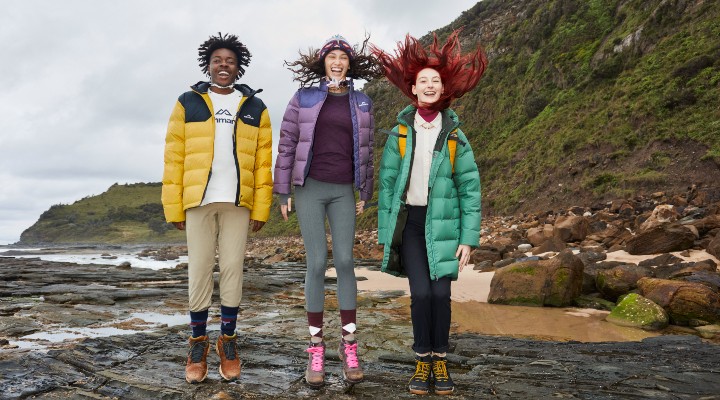After a difficult start to the year, outdoor group Kathmandu ended FY21 with relatively strong sales growth of 15.1 per cent, bringing in $891 million, largely off the back of Rip Curl’s stellar performance and growth in North American shoe brand Oboz.
The group ended the year with a underlying net profit of $64 million – more than double what was achieved during FY20.
Once again, however, the Kathmandu brand suffered throughout the year. Continued travel and movement restrictions have hurt the business’ relevancy to its customer base, leading Kathmandu to see sales fall 17 per cent and earnings before interest and tax 48.8 per cent. Online sales continued to grow, however, with a four-year CAGR of 14.3 per cent.
A recent rebrand, however, has delivered some return to form according to the group.
Surfwear-brand Rip Curl, on the other hand, continued performing above the group’s expectations. After bringing Kathmandu Group through the first half, Rip Curl delivered a 1252 per cent increase in earnings to $55 million – though this was being compared to an eight month period, compared to this year’s full year contribution.
“Rip Curl achieved sales above pre-Covid levels in the key regions of North America and Europe during the Northern Hemisphere summer season, benefitting from increased participating in surfing, and reflecting the brand’s technical product focus and strong consumer engagement,” said Kathmandu Group’s new group chief executive Michael Daly.
“Rip Curl’s wholesale order books are now significantly above pre-Covid levels.”
Shoe-brand Oboz also saw sales and earnings growth, with its forward order book at its “highest level ever”, giving the group the green light to further invest in its growth.
According to Daly the year ahead isn’t likely to be a walk in the park, despite the path out of lockdowns being phased into its key markets of Australia and New Zealand.
The group’s first half result for FY22 is expected to be below last year’s due to ongoing lockdown activity in Australasia, and the subsequent impact to supply chains due to closures across factories and warehouses, as well as freight congestion.







